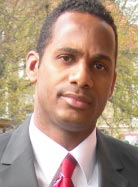
LITERATURE on “progressive thinking” around the world is booming, and this trend is due to the inevitable need for societies and economies to make the most efficient use of all their resources (human, structural, infrastructural, mineral, etc) to achieve the greatest levels of equity, sustainability and progress – in an age of cut-throat competition, economic liberalization and globalization.
Since my book “CONSCIENCE OF A PROGRESSIVE” was published and launched three weeks ago, the feedback and support for the ideas presented have been overwhelming. Yet, the constant challenges and requests to explain the anatomy of progressive thinking, based on our own local reality, needed to be addressed and hence this explanatory piece.
Modern perspectives of “progressive thinking” are built upon the ideas of generations of progressives from Theodore Roosevelt and Franklin Roosevelt to Dr. Martin Luther King, Jr. and Barack Obama: “Everyone gets a fair shot, everyone does his or her fair share, and everyone plays by the same rules.” In other words, “everyone should do his or her fair share to build this life through education and hard work and through active contribution and participation in public life.”
The term “PROGRESSIVE” has its roots in the word “progress” and the idea of making things better. It implies support for equality, change and reform. A timeless progressive vision is: “Government of the people, by the people, and for the people.” Hillary Clinton likes to say: “I’m a progressive who likes to get things done.” For me, this statement exemplifies what drives social progress and economic development – the imperatives of organization, execution and implementation.
Progressive people are interested in structured change and sustainable development. According to conventional ideology, “People who are ‘progressives’ favour reform, civil liberties, human resource development and political enlightenment.” John Halpin of the Centre for American Progress writes that “Progressivism is a non-ideological, pragmatic system of thought grounded in solving problems and maintaining strong values within society. It’s a dynamic concept giving the LEADERSHIP of an up-and-coming generation the tools to make a nation’s future brighter for all.”
As Saint Lucia approaches its 40th anniversary of political independence in 2019, let’s prepare for that milestone by committing ourselves to a process of educational transformation and mental renewal. Hopefully, our island by then would have experienced a new coming of age. Let’s make the next decade the one that ushered in the mentality change needed for us to develop and to progress as a nation. Let’s inspire our children to do more, dream more, be more and become more. All of us must demonstrate an interest in the future direction of our country by participating in its governance and development. It is the responsibility of every patriotic citizen to contribute to the vitality and well-being of Saint Lucia, for the love of country.
Leaders in all spheres of society need to look beyond the horizon and prepare long-term plans and projections in pursuit of sustainable development goals in the areas of education, health care, family care, ecology and agriculture.
Progressive thinking embraces constructive initiatives and ideas that will support the creation of the skilled jobs needed, equip the nation’s children with the education and skills they need for the future and anchor value-creating enterprises in Saint Lucia.
The society is now clamouring for social and economic remodelling and political renewal. For such sweeping reforms, however, we’ll need both tactical and visionary leadership to address the unacceptable levels of poverty and illiteracy, increase national income, build the economic infrastructure, attract foreign investment, educate the masses, upgrade our health system and strengthen our local and national institutions.
Quite urgently, we need to modernise the police force, cut bureaucracy and invest more in information technology to improve efficiency and effectiveness in the public service, and to foster greater educational productivity in schools and colleges.
Economic growth requires a sound economic base of engineering skills, and this cannot be achieved without an increase in the number of engineers and scientists. We need to develop an economy that actually designs, builds, and sells stuff. Saint Lucia needs to become a more dynamic and productive nation – one averse to wasting resources (labour, opportunity, time, materials, land, etc). There is no doubt that government can and must play a vital role in promoting an efficient economy, but the brunt of the effort must be on the shoulders of responsible citizens, functioning institutions and an unfettered private sector.
At a time of rising anxiety among the youth and with the onset of signs and symptoms of a broken society, there is no doubt in my mind that a bona-fide national conversation needs to be started to identify the circumstances and causes of the social breakdown – and evidence-based policies instituted to tackle the social ills.
CONSCIENCE OF A PROGRESSIVE explains that through positive social and political transformation, people can change their definition of politics to one of public service, scope for the country’s bright future, what they can do for their country and the most desirable burden to carry for the good of the State.
For comments, write to ClementSoulage@hotmail.de – Clement Wulf-Soulage is a Management Economist, Published Author and Former University Lecturer.














